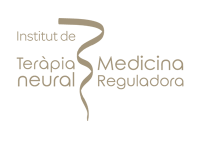10 Minutes
Holistic and natural remedies are increasingly being sought after by consumers of health care today. The idea of mending the whole person—body, mind, and spirit—instead of just the physical body is gaining popularity.
The services offered by the center for integrative medicine are meant to supplement more traditional medical treatments, not replace them. Our staff works with each patient to identify which services are most suited, from traditional treatments like naturopathic methods and acupuncture to mind-body therapies like relaxation techniques and biofeedback.
Patients are advised to get a recommendation from their primary care physician in order to receive treatment at the center. By creating a channel of contact between professionals at the center and referring doctors, the referral process encourages a team-based approach to care. Patients may engage in an initial assessment process or ask for a specific therapy or program.
Many people want additional natural and alternative remedies as part of their treatment programs, especially in certain medical fields like cancer. Having said that, it is crucial to remember that substituting complementary therapies on their own for recommended clinical treatments could have a negative impact on a person’s health.
Instead, patients should speak with a doctor about their existing therapies so that they can get advice on the right course of action.
Continue reading to discover more about centers for integrative medicine and healing, including the conditions it may help with, the treatments offered, the benefits and risks, and the medical professionals running them.
FAQs
A UNIQUE METHOD
successful and proven integrative holistic conceptMedical TREATMENT LASTING APPROACH
0 Before
Send Request
0 Before
Define Treatment Goals
1 week
Assessments
1-4 week
Integrative Holistic Therapies
5-12 week
Aftercare
12+ week
Refresher Visit
Medical Insights
latest news & research on MedicalWhat is Holistic Health
Holistic health is a way of living that takes into account all aspects of wellness. It promotes respect for the whole person, including their mental, physical, social, intellectual, emotional, and spiritual needs. The person takes an active role in making decisions about their health and treatment, including choosing a lifestyle that promotes wellbeing.
read moreHolistic Medicine
In general, holistic medicine blends conventional medicine with complementary and alternative medicine that have been shown by scientific evidence to be effective.
read moreAccreditations



























































